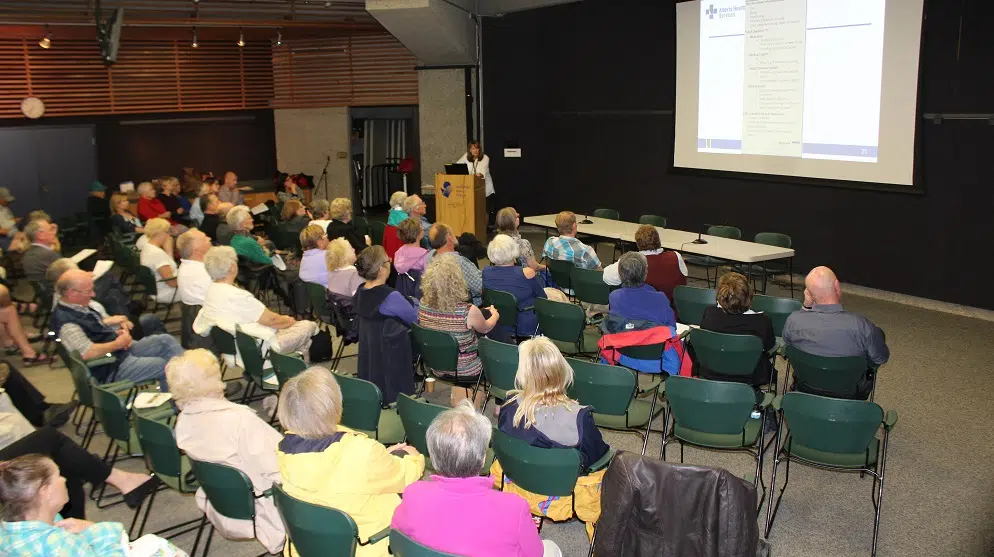
Five South Zone residents exercise right to assisted death
LETHBRIDGE – Questions about medically assisted dying legalities and processes in Lethbridge were answered Tuesday night (Sept. 27) at a SACPA special panel.
In front of an inquisitive crowd in the Theatre Gallery at the Lethbridge Public Library, a panel of healthcare providers outlined how medical assistance in dying (MAID) is being implemented in Lethbridge and suggested how laws regarding eligibility ought to be broadened.
Sean Chilton, Chief Zone Officer, South Zone, Alberta Health Services said that the evening was a chance to inform the public what options are available to them and how AHS’s response to MAID provides patient centered care for individuals and their families.
“We’ve had five individuals across the south zone that have gone through with MAID and there is about 25 people who have expressed and looked for more information around MAID.”


